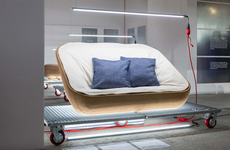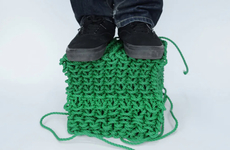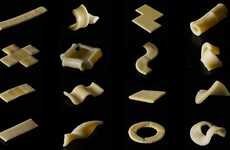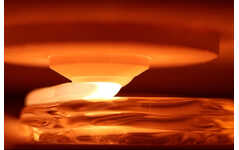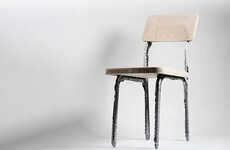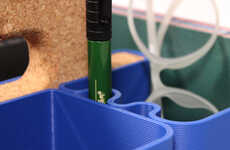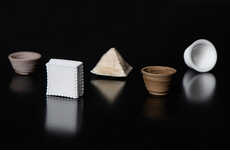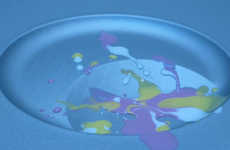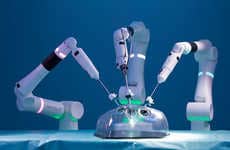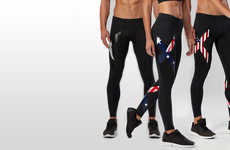
Carnegie Mellon University Uses Heat to Instill Change in Objects
Kalin Ned — May 1, 2018 — Art & Design
References: morphingmatter.cs.cmu.edu & dezeen
Researchers from the Morphing Matter Lab at Carnegie Mellon University are working with 4D-printed objects to create a technique that will allow for flat-pack furniture to be assembled with heat alone. So far, the project is in its early stages. The academics have figured out a way for small "4D-printed plastic objects [to] fold themselves into predetermined shapes when heated."
The project's name is 'Thermorph' and is based on what-is-considered a flaw in the 3D printing practice. The researchers have created three objects — a rose, a bot and a bunny, using an inexpensive FDM printer. The Morphing Matter Lab uses design-thinking to turn a flaw into an advantage, as it harnesses the activity of warpage — a defect in 3D that can occur after printing.
If the researchers can develop the 4D-printed objects, they have the potential of creating a highly innovative and no-stress furniture assemblage technique.
The project's name is 'Thermorph' and is based on what-is-considered a flaw in the 3D printing practice. The researchers have created three objects — a rose, a bot and a bunny, using an inexpensive FDM printer. The Morphing Matter Lab uses design-thinking to turn a flaw into an advantage, as it harnesses the activity of warpage — a defect in 3D that can occur after printing.
If the researchers can develop the 4D-printed objects, they have the potential of creating a highly innovative and no-stress furniture assemblage technique.
Trend Themes
1. 4D Printing - The development of self-folding 4D-printed objects presents an opportunity for disruptive innovation in manufacturing and product assembly.
2. Heat-activated Technology - Advancements in using heat to instill change in objects open up possibilities for disruptive innovation in various industries, including furniture manufacturing and packaging.
3. Design-thinking Approach - The use of design-thinking to turn a flaw in 3D printing into an advantage creates opportunities for disruptive innovation in materials science and product design.
Industry Implications
1. Manufacturing - The self-folding 4D-printed objects can revolutionize manufacturing processes, offering efficient and cost-effective assembly methods.
2. Furniture - The heat-activated technology can disrupt the furniture industry by enabling easy and hassle-free assembly of flat-pack furniture.
3. Packaging - Advancements in 4D printing and heat-activated technology can lead to innovative packaging solutions that self-assemble or adapt to different shapes and sizes.
4.7
Score
Popularity
Activity
Freshness

